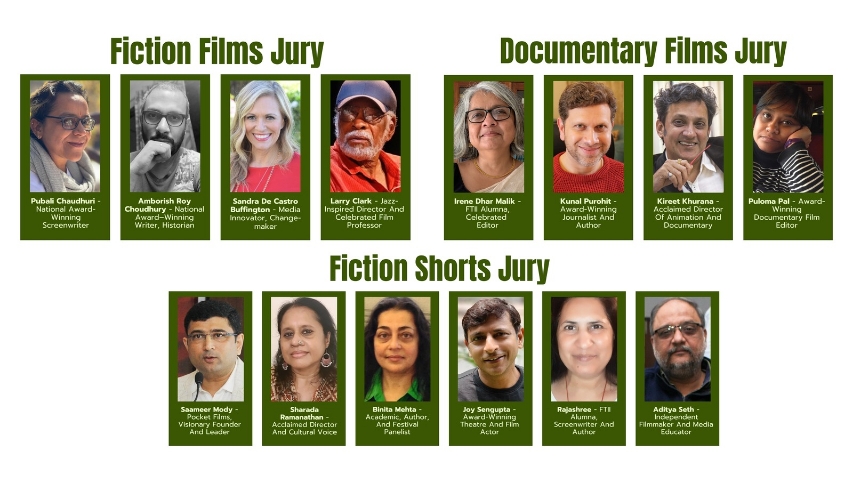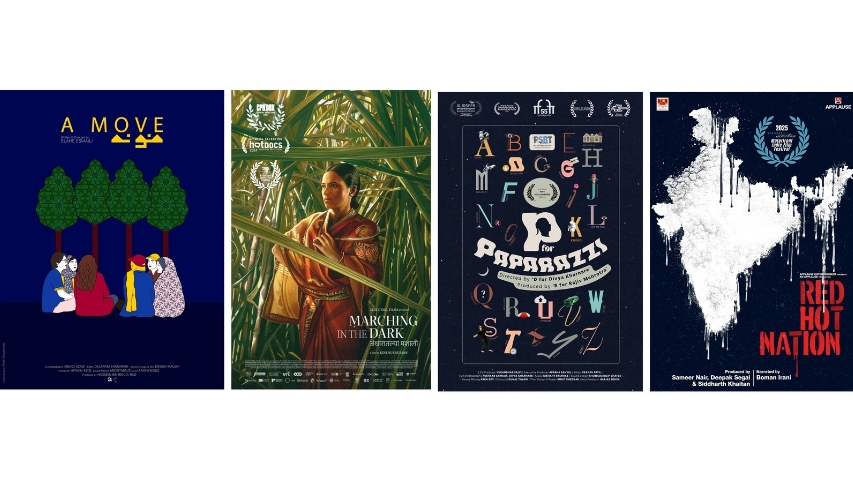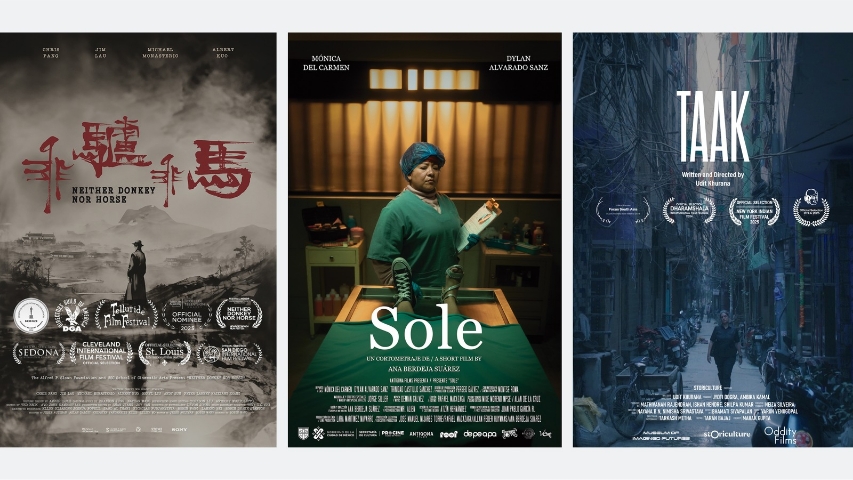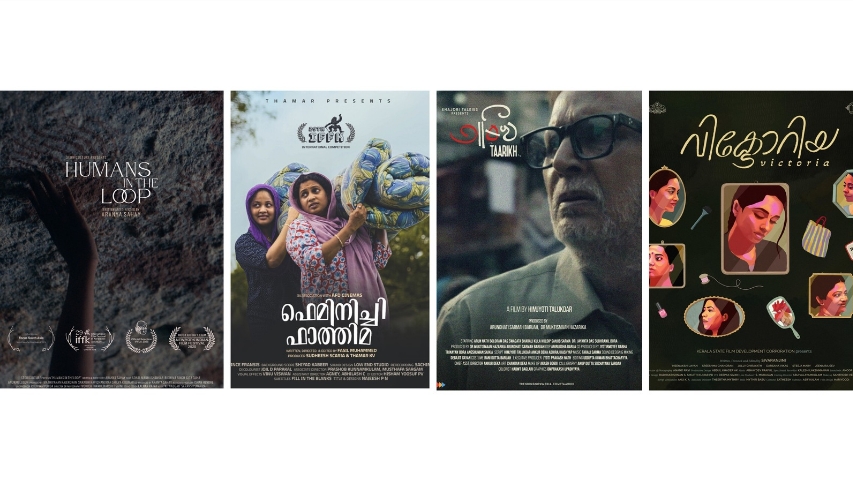
THOUGHT FACTORY: STORIES THAT SHAPE OUR WORLD
by Editorial Desk October 13 2025, 12:00 am Estimated Reading Time: 4 mins, 44 secsFrom intimate documentaries to visionary fiction, the WIFF 2025 Jury—comprising acclaimed filmmakers, writers, and storytellers—honoured films that challenged conventions, amplified marginalized voices, and reminded us of cinema’s power to provoke empathy, dialogue, and change. The #Newsdesk reports.
The Waterfront Indie Film Festival (WIFF) Mumbai 2025 honoured cinematic excellence across fiction, documentary, and experimental categories, celebrating voices that challenge, heal, and transform. With distinguished jurors including Amborish Roychoudhury, Larry Clark, Pubali Chaudhuri, Sandra de Castro Buffington, Irene Dhar Malik, Kireet Khurana, Kunal Purohit, Puloma Pal, Aditya Seth, Binita Mehta, Joy Sengupta, Raju Rajshree, Saameer Mody, and Sharada Ramanathan, WIFF recognized films like Victoria, Marching in the Dark, Humans in the Loop, Feminist Fathima, and Red Hot Nation. The festival reaffirmed independent cinema’s mission—to tell stories of justice and imagination that connect humanity across borders.

Cinema That Transcends Boundaries: The Jury and Their Vision
WIFF Mumbai 2025 celebrated the transformative power of storytelling with three distinguished juries evaluating Fiction Features, Documentaries & Experimental Films, and Fiction Shorts.
The Fiction Features Jury, comprising Amborish Roychoudhury, Larry Clark, Pubali Chaudhuri, and Sandra de Castro Buffington, recognized films that explored humanity’s struggles with grace and imagination. The Documentary & Experimental Jury—Irene Dhar Malik, Kireet Khurana, Kunal Purohit, and Puloma Pal—awarded truth-telling through compelling cinematic forms. Meanwhile, the Short Films Jury—Aditya Seth, Binita Mehta, Joy Sengupta, Raju Rajshree, Saameer Mody, and Sharada Ramanathan—honoured powerful short-format storytelling that transcended borders.

Documentary and Experimental Excellence: Voices of Truth and Resistance
The Best Documentary or Experimental Short Film was awarded to A Move, directed by Elahe Esmaili, “for its portrayal of a slice of paradise where no one is an outcast... emanating the message of ‘Jin, Jiyan, Azadi’ (Woman, Life, Freedom).”
The Best Documentary or Experimental Feature award went to Marching in the Dark, directed by Kinshuk Surjan, “for its authentic portrayal of the farmers’ suicide crisis... capturing with realistic detail the grit and stoicism of the protagonist Sanjivani.”
Kinshuk Surjan also received Best Director (Documentary) “for his extraordinary empathy, painstakingly building a bond with his protagonist and capturing her quiet determination with striking sensitivity.”
The Jury Mention for Best Director (Documentary) went to Divya Hemant Kharnare for Paparazzi, “a powerful film that lays bare the realities of today’s socio-economic order through a protagonist who feeds the insatiable appetite of social media even as he battles poverty and precarity.”
The WIFF Award for Best Film on Social Issues was presented to Red Hot Nation, produced by Applause Entertainment, “for its powerful exploration of climate change and its potentially devastating consequences on the country.”

Short Fiction Mastery: Intimacy, Imagination, and Impact
The Best Director (Fiction Short Film) went to Ana Berdeja for Sole, “a powerful story of emancipation and self-discovery, where through magic realism a senior embalmer learns to love herself.”
The Best Fiction Short Film was Karateka, directed by Florence Fauquet, “for its handling of a sensitive women’s issue with courage and cinematic finesse, excelling in screenplay, cinematography, editing, sound, and performances.”
Two special Jury Mentions for Fiction Short Films were awarded—first to Neither Donkey Nor Horse, directed by Robin Wang, “for vividly recreating a 1910 Chinese hospital and the true story of Dr. Wu Lien-teh... subtly countering post-COVID discrimination against Asian Americans.”
The second went to Tracker, directed by Udit Khurana, “a disturbing narrative of how technology intrudes our lives, as a former wrestling champion turned nightclub bouncer battles the moral weight of her job.”

Fiction Features That Redefine Storytelling and Emotion
In the Fiction Feature category, the Best Performance – Female went to Sonal Madhushankar for Humans in the Loop, “for her deeply affecting portrayal of Nehma Oraon, a migrant woman caught in the cycle of survival and self-worth.”
The Best Performance – Male was awarded to Arun Nath for Taarikh, “for his poignant portrayal of an ageing journalist burdened by memory and loss, capturing grief, guilt, and redemption with haunting realism.”
Kalhan Raina won Best Sound Design for Humans in the Loop, “for its immersive soundscape that powerfully blends machinery, voices, and silences.”
Two Best Cinematography awards were given: Anand Ravi for Victoria, “transforming the confined space of a beauty parlour into a visual world of light and emotion,” and Monika Tiwari and Harshit Saini for Humans in the Loop, “for capturing the precarious lives of displaced workers with realism and compassion.”
The Best Screenplay awards were shared by Himjyoti Talukdar, Ankur Deka, and Adhiraj Kashyap for Taarikh, “a poetic debut transforming grief into storytelling,” and Aranya Sahay for Humans in the Loop, “for juxtaposing big tech against rural India and traditional knowledge systems.”
The Best Film by a Debut Director went to Fasil Muhammed for Feminist Fathima, “a refreshing narrative that challenges patriarchal norms while celebrating female agency.”
The Best Director (Fiction Feature) was Sivaranjini for Victoria, “for effectively bringing the expanse of women’s concerns within the confines of an uniquely women-only space.”
Two Jury Mentions celebrated emerging voices: Nukkad Naatak, directed by Tanmaya Shekhar, “for its daring exploration of youth, rebellion, and identity,” and Body, directed by Abhijit Mazumdar, “for its visual poetry exploring fragility, resilience, and the quiet rhythm of existence.”
Finally, the Best Fiction Feature was awarded to Victoria, directed by Sivaranjini, “because the personal is very often universal, and we can only hope to change the world when we start with changing our minds.”




-173X130.jpg)
-173X130.jpg)

-173X130.jpg)


-173X130.jpg)
